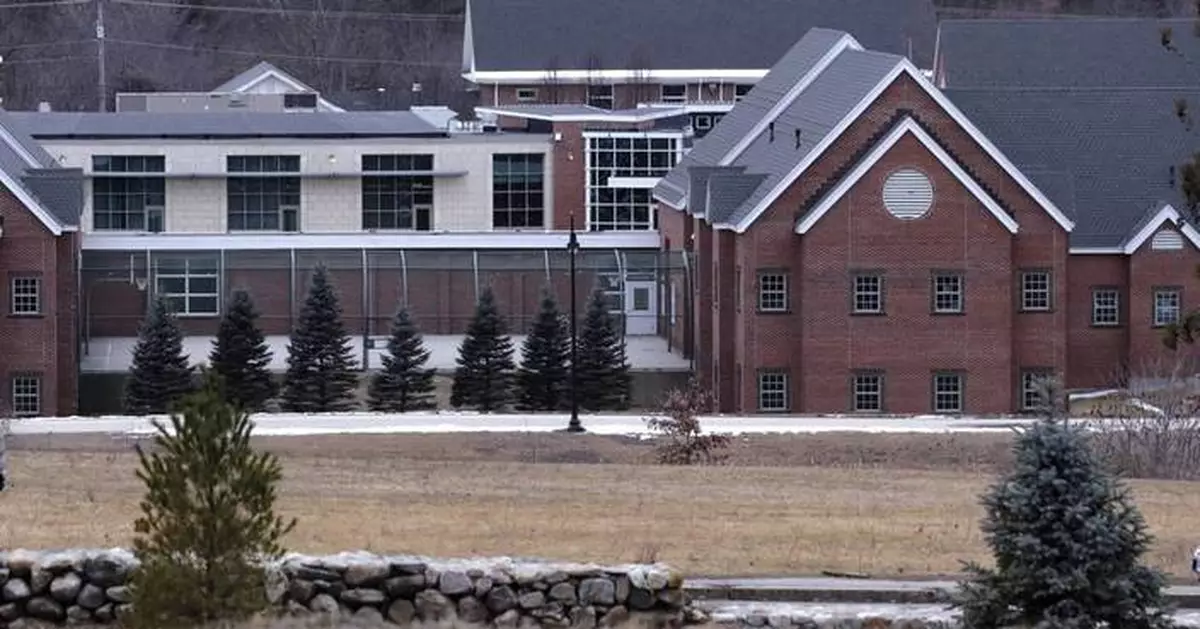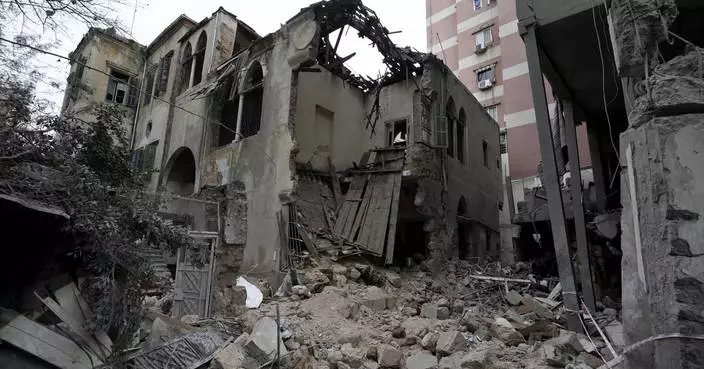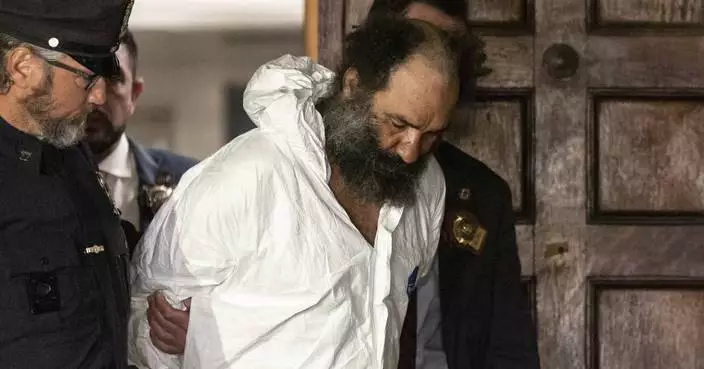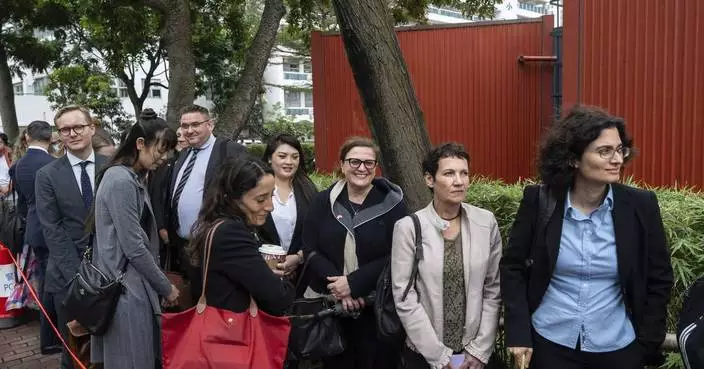MANCHESTER, N.H. (AP) — The trial of a man accused of holding down a teenage boy so colleagues could rape and abuse him at a New Hampshire youth center in the 1990s is set to begin Tuesday.
It's the second criminal trial to stem from a broad 2019 investigation into historic abuse at the Sununu Youth Services Center in Manchester. Bradley Asbury, now age 70, is among nine men who worked at the Manchester center or an associated facility in Concord who are facing criminal charges.
Asbury and a colleague are accused of restraining the boy in the dormitory where Asbury served as house leader in 1997 while a third staffer raped him and a fourth forced him to perform a sex act. The boy was about 13 at the time.
Three years earlier, Asbury had been fired from the Concord facility over allegations of physical and psychological abuse. But he was later rehired and transferred to Manchester, where he worked until 2001.
Asbury is charged with two counts of being an accomplice to aggravated sexual assault. If found guilty, he faces a maximum prison term of 20 years on each count. His lawyer did not immediately respond to a request for comment, and prosecutors said they don't comment on active cases.
An earlier case against Victor Malavet ended in a mistrial in September after jurors deadlocked on whether he raped a girl at the Concord facility. A new trial in that case has yet to be scheduled.
The investigation has also led to extensive civil litigation. More than 1,100 former residents have filed lawsuits alleging physical, sexual or emotional abuse spanning six decades. In the only civil case to go to trial so far, a jury awarded David Meehan $38 million in May for abuse he says he suffered in the 1990s, though that verdict remains in dispute as the state seeks to reduce it to $475,000.
The Meehan civil trial provided a preview for the current case. Among those testifying was Asbury’s accuser, Michael Gilpatrick, who testified that Asbury and three other staffers were known by teens in the dormitory as “the hit squad.”
“The four of them used to roll together, and they would go to different cottages and beat kids,” he said. “They would literally come over and just go door to door and beat every single one of us, down the line.”
The Associated Press generally does not identify those who say they were victims of sexual assault unless they have come forward publicly, as Meehan and Gilpatrick have done.
Gilpatrick, who spent three years at the Manchester center in the 1990s, testified that he ended up there after running away from multiple group homes, committing a burglary and stealing food to survive on the streets.
He said the sexual assault involving Asbury happened after he ran away while on a furlough. He had already spent several days locked in his empty room wearing only his underwear when the workers brought him to the house leader’s office and then to a stairwell, he testified.
He said the assault led to an out-of-body experience.
“It felt like I hovered over and watched it,” Gilpatrick said. “My body just went blank.”
Gilpatrick said Asbury was a bad man.
“Not only did he have power over all the kids, he had power over the staff as well.”
In 2000, during a state investigation into physical abuse and neglect at the youth center, Asbury denied there was a problem.
“That stuff does not take place. It’s not tolerated," Asbury told The Union Leader. "We don’t have time to abuse them.”
The trial highlights the strange dynamic of the state simultaneously defending itself against civil suits relating to the youth center while also prosecuting criminal cases.
During the first civil case to go to trial, the state portrayed Asbury as a dedicated worker who won accolades for organizing volunteer work for the teenagers. In the current case, the state intends to portray Asbury in a much darker light.
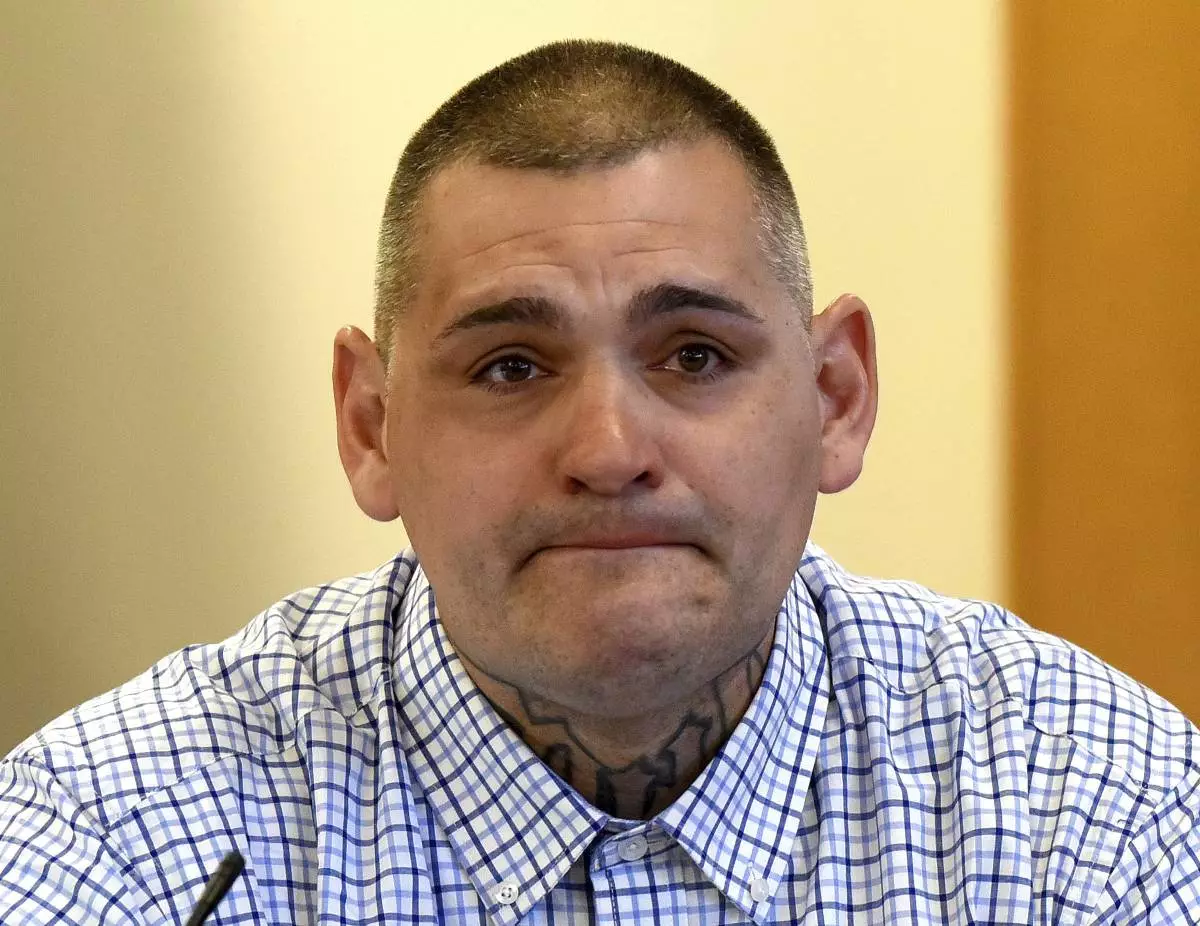
FILE - Michael Gilpatrick, a former youth detention center resident, fights back tears as testifies during a civil trial seeking to hold the state accountable for alleged abuse at the Sununu Youth Services Center, formerly called the Youth Development Center, April 17, 2024, at Rockingham County Superior Court in Brentwood, N.H. (David Lane/Union Leader via AP, Pool, File)
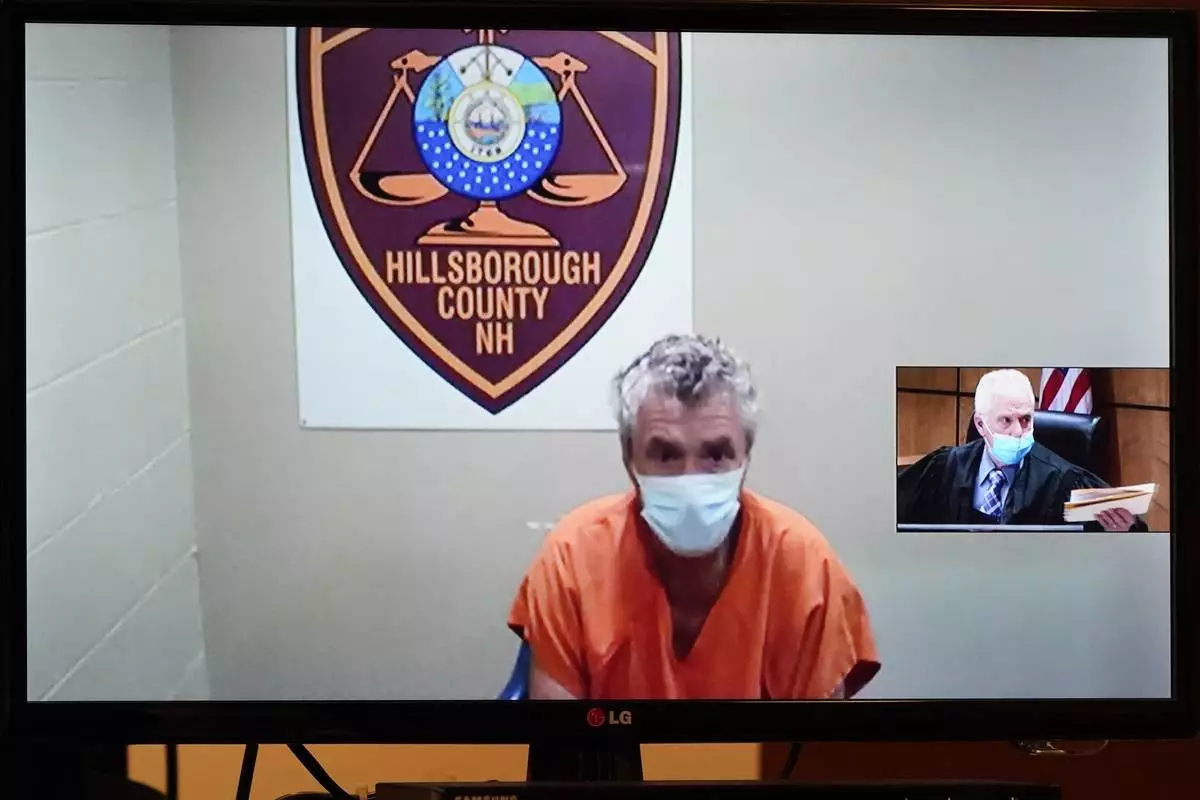
FILE - Bradley Asbury is arraigned via video as Judge William Lyons presides, at right, at Manchester, N.H., April 8, 2021. (AP Photo/Elise Amendola, Pool, File)
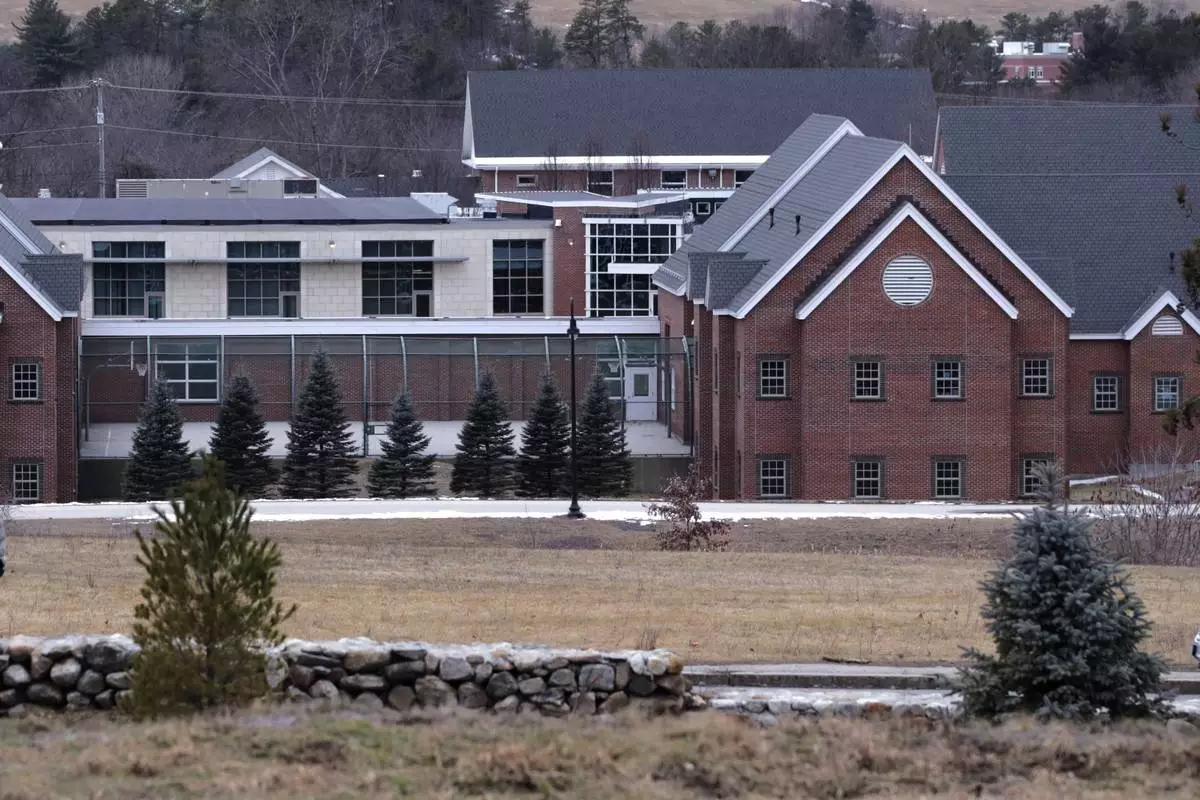
FILE - The Sununu Youth Services Center is seen amongst the trees on Jan. 28, 2020, in Manchester, N.H. (AP Photo/Charles Krupa, File)
President Vladimir Putin on Tuesday formally lowered the threshold for Russia’s use of its nuclear weapons, a move that follows U.S. President Joe Biden’s decision to let Ukraine strike targets inside Russian territory with American-supplied longer-range missiles.
The new doctrine allows for a potential nuclear response by Moscow even to a conventional attack on Russia by any nation that is supported by a nuclear power.
Russia’s Defense Ministry said Ukraine fired six U.S.-made ATACMS missiles early Tuesday at a military facility in Russia's Bryansk region that borders Ukraine, adding that air defenses shot down five of them and damaged one more.
While the doctrine envisions a possible nuclear response by Russia to such a conventional strike, it is formulated broadly to avoid a firm commitment to use nuclear weapons and keep Putin's options open.
The approval of the document demonstrates Putin’s readiness to tap his nuclear arsenal to force the West to back down as Moscow presses a slow-moving offensive in Ukraine as the war reached its 1,000th day.
Asked Tuesday if a Ukrainian attack with longer-range U.S. missiles could potentially trigger a nuclear response, Kremlin spokesman Dmitry Peskov answered affirmatively, pointing to the doctrine’s provision that holds the door open for it after a conventional strike that raises critical threats for the "sovereignty and territorial integrity: of Russia and its ally, Belarus.
Commenting on whether the updated doctrine was deliberately issued to follow Biden’s decision, Peskov said the document was published “in a timely manner” and that Putin instructed the government to update it earlier this year so that it is “in line with the current situation.”
Putin first announced changes in the nuclear doctrine in September, when he chaired a meeting discussing the proposed revisions. He has previously warned the U.S. and other NATO allies that allowing Ukraine to use Western-supplied longer-range weapons to hit Russian territory would mean that Russia and NATO are at war.
Washington has permitted Ukraine to use the longer-range weapons on targets inside Russia after declaring that thousands of North Korean troops were deployed in the Russian region of Kursk to fight an incursion by Kyiv's forces.
White House officials were not surprised by Putin’s decision, and the U.S. has seen no change to Russia’s nuclear posture, according to a U.S. National Security Council official who was not authorized to comment publicly and requested anonymity.
As a result, the Biden administration has “not seen any reason to adjust our own nuclear posture or doctrine in response to Russia’s statements today,” the official added. Still, the official says the White House views it as “irresponsible rhetoric.”
But the official underscored that the arrival of thousands of North Korea soldiers to take part in combat operations against Ukraine was a major escalation by Moscow that demanded a response.
British Prime Minister Keir Starmer denounced the revised nuclear doctrine as the “latest example of irresponsibility” from “the depraved Russian government,” according to spokesperson Camilla Marshall.
“Russia’s the one that continues to escalate this war, and the use of North Korean troops is just one example of that,” Marshall said. “He could remove his troops, roll back his tanks and end the onslaught and needless bloodshed in both Ukraine and Russia. … We would urge him to do so.”
German Foreign Minister Annalena Baerbock said in Warsaw that her country would not be intimidated by Russia’s new policy, saying her country made the mistake of cowering in the face of Moscow's aggression in the past but would not do so again.
The updated doctrine says an attack against Russia by a nonnuclear power with the “participation or support of a nuclear power” will be seen as their “joint attack on the Russian Federation.”
It says any massive aerial attack on Russia could trigger a nuclear response but avoids any firm commitment and mentions the “uncertainty of scale, time and place of possible use of nuclear deterrent” among the key principles of the nuclear deterrence.
The document also notes that aggression against Russia by a member of a military bloc or coalition is viewed as "an aggression by the entire bloc," a clear reference to NATO.
At the same time, it spells out conditions for using nuclear weapons in greater detail compared with previous versions of the doctrine, noting they could be used in case of a massive air attack involving ballistic and cruise missiles, aircraft, drones and other flying vehicles.
The formulation appears to significantly broaden the triggers for possible nuclear weapons use compared with the document's previous version, which stated Russia could tap its atomic arsenal if case of an attack with ballistic missiles.
President Alexander Lukashenko, who has ruled Belarus with an iron hand for more than 30 years and has relied on Russian subsidies and support, has allowed Russia to use his country’s territory to send troops into Ukraine and to deploy some of its tactical nuclear weapons.
Since Putin sent troops into Ukraine, he and other Russian voices have frequently threatened the West with Russia’s nuclear arsenal to discourage it from ramping up support for Kyiv.
Russian hawks called for toughening the doctrine for months, arguing the previous version failed to deter the West from increasing its aid to Ukraine and created the impression that Moscow would not resort to nuclear weapons.
—-
Aamer Madhani in Washington and Vanessa Gera in Warsaw, Poland, contributed.
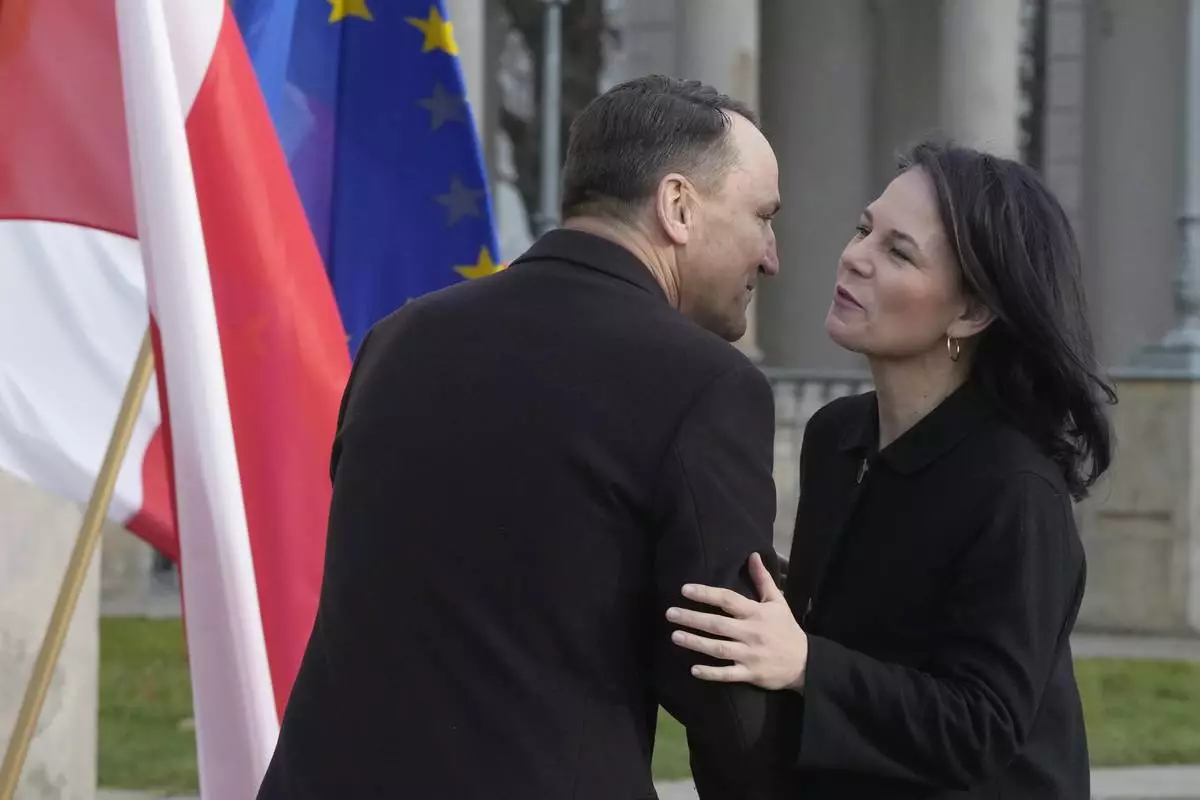
Germany's Foreign Minister Annalena Baerbock, right, is greeted by Poland's Foreign Minister Radoslaw Sikorski, upon her arrival for a meeting of European foreign ministers, in Warsaw, Tuesday, Nov. 19, 2024. (AP Photo/Czarek Sokolowski)
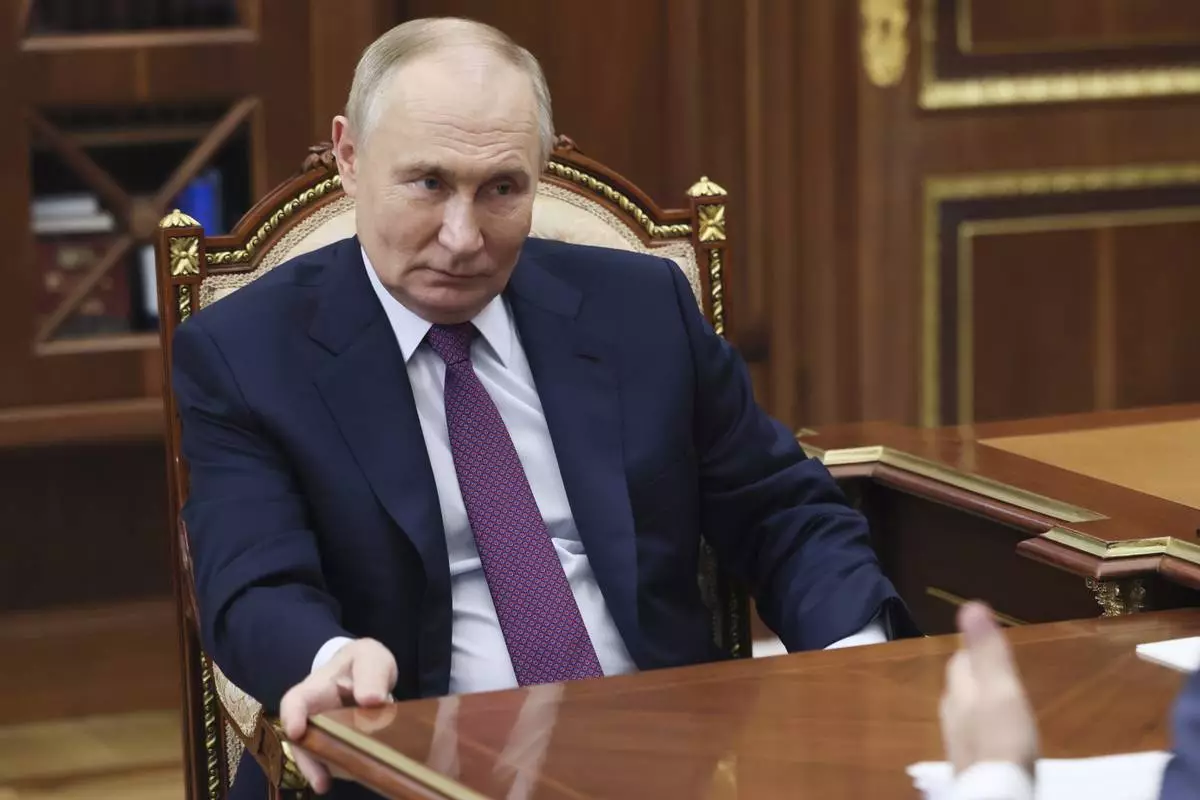
Russian President Vladimir Putin attends a meeting with New People party's leader Alexey Nechaev in Moscow, Russia, Tuesday, Nov. 19, 2024. (Vyacheslav Prokofyev, Sputnik, Kremlin Pool Photo via AP)
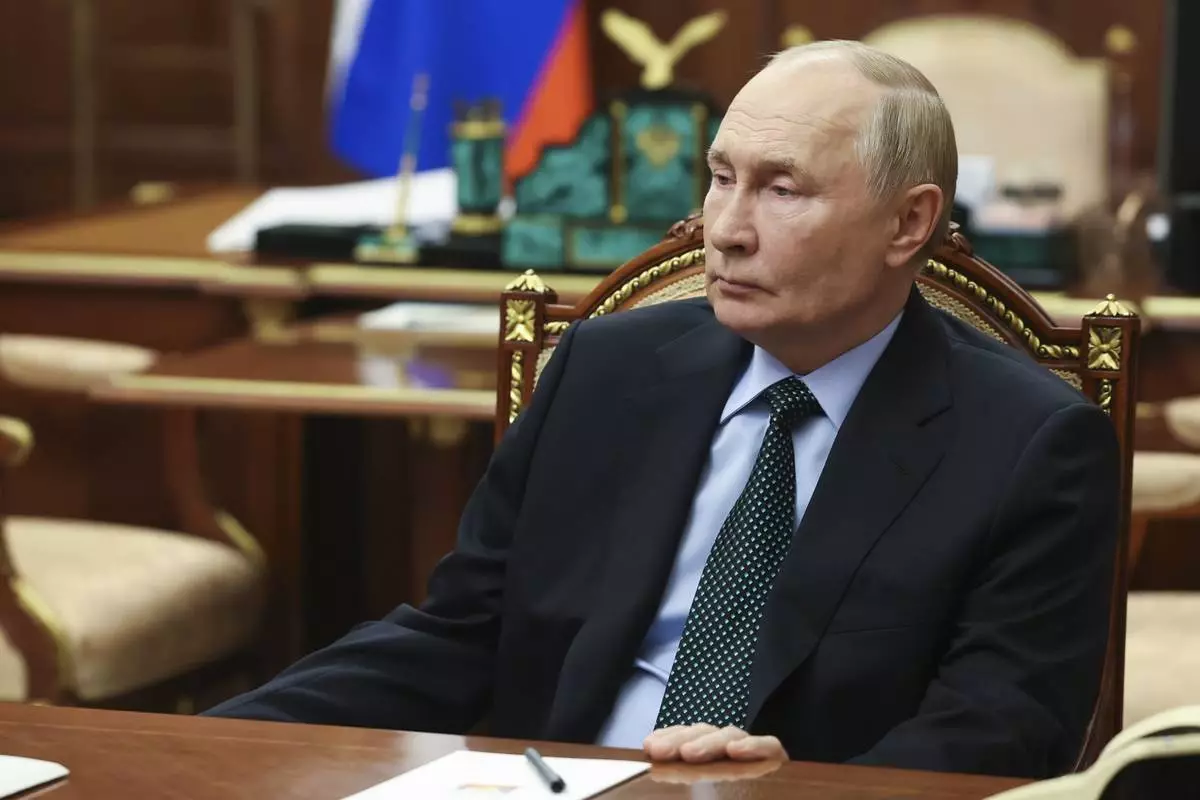
Russian President Vladimir Putin listens to Moscow-appointed head of Russian-controlled Zaporizhzhia region of Ukraine, Yevgeny Balitsky during their meeting at the Kremlin in Moscow, Russia, Monday, Nov. 18, 2024. (Vyacheslav Prokofyev, Sputnik, Kremlin Pool Photo via AP)





